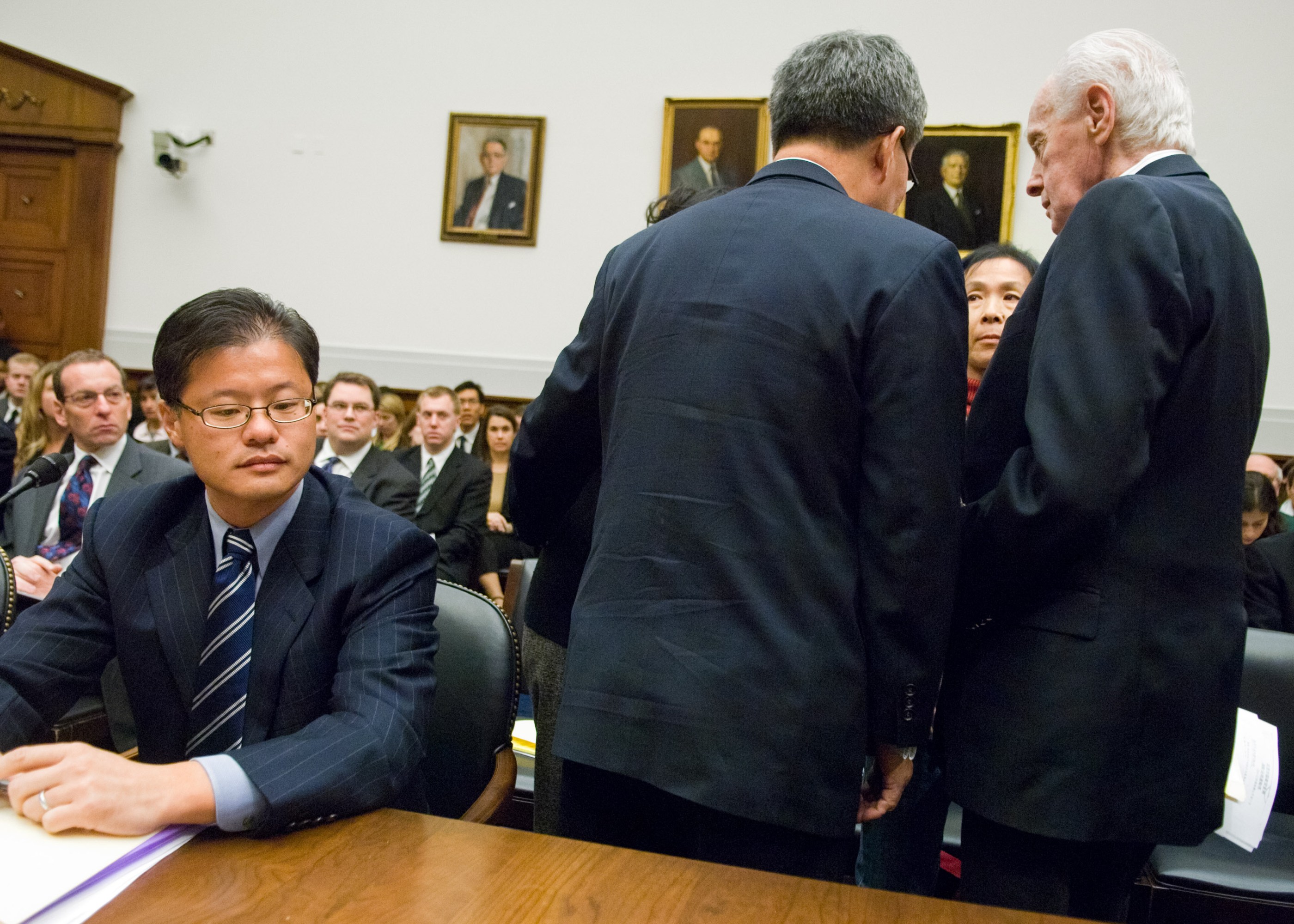Inside the decades-long fight over Yahoo’s misdeeds in China
In many ways, the situation Yahoo found itself in 20 years ago is the same one today’s biggest tech giants still deal with when they operate in authoritarian regimes. In July, for instance, a judge in California ruled that a long-running lawsuit against Cisco can move forward and determine the company’s responsibility in building China’s internet surveillance apparatus—work that allegedly led to the arrest, detention, and torture of the plaintiffs and their family members.
At the very least, says William Nee, the research and advocacy coordinator at Chinese Human Rights Defenders, this case “helps remind companies that want to do business in China that their decisions can have real, tangible consequences on human lives.”
Image rehab
When Yahoo entered China in 1998, Yahoo.com was the internet’s most popular web portal, visited by over 95 million users daily. But operating there meant Yahoo China had to make a choice: whether to cooperate with requests from the Chinese state security apparatus, or to protect the privacy—and, in turn, safety—of its users.
In 2002, Yahoo, whose CEO was then Terry Semel, made its decision to share user information with Chinese law enforcement. This led to the arrest that September of the dissident Wang Xiaoning, who called in a Yahoo email group for the end of one-party rule. (Semel is not named in the lawsuit, and no public evidence ties him directly to these company actions.)
Then, in 2005, another Yahoo user, a journalist named Shi Tao, was arrested for the “suspected illegal provision of state secrets to foreign entities,” an oft-used code phrase for political speech that the Chinese Communist Party disagrees with. Shi’s was the first known case to come to light, and the public outcry and subsequent business repercussions for Yahoo were harsh and swift. There were “a series of Congressional hearings targeting Yahoo’s senior leadership, lawsuits, a 5% drop in share price (on the day of the hearing), calls for boycotts … and negative publicity around the world,” David Hantman, the company’s vice president of global public policy, summarized in an internal email to the Yahoo board in 2012.
CQ ROLL CALL VIA AP IMAGES
At a congressional hearing in 2007, Representative Tom Lantos, chairman of the House Foreign Affairs Committee, memorably scolded Yahoo’s founder, Jerry Yang (then serving as interim CEO), along with the company’s general counsel, Michael Callahan: “While financially and technologically you are giants, morally you are pygmies.”
To resolve the mounting crisis and to settle a highly publicized lawsuit brought by Shi Tao’s mother and Wang Xiaoning’s wife, the company promised to conduct human rights impact assessments before entering international markets and to fund internet freedom fellowships at Georgetown and Stanford Universities, among other actions.
But Yahoo’s most celebrated response was creating the Yahoo Human Rights Fund to offer assistance to online dissidents, with “the highest priority given” to “[i]ndividuals who used Yahoo’s services to express themselves,” according to one 2008 press statement.
In many ways, the situation Yahoo found itself in 20 years ago is the same one today’s biggest tech giants still deal with when they operate in authoritarian regimes. In July, for instance, a judge in California ruled that a long-running lawsuit against Cisco can move forward and determine the company’s responsibility in building China’s internet surveillance apparatus—work that allegedly led to the arrest, detention, and torture of the plaintiffs and their family members.
At the very least, says William Nee, the research and advocacy coordinator at Chinese Human Rights Defenders, this case “helps remind companies that want to do business in China that their decisions can have real, tangible consequences on human lives.”
Image rehab
When Yahoo entered China in 1998, Yahoo.com was the internet’s most popular web portal, visited by over 95 million users daily. But operating there meant Yahoo China had to make a choice: whether to cooperate with requests from the Chinese state security apparatus, or to protect the privacy—and, in turn, safety—of its users.
In 2002, Yahoo, whose CEO was then Terry Semel, made its decision to share user information with Chinese law enforcement. This led to the arrest that September of the dissident Wang Xiaoning, who called in a Yahoo email group for the end of one-party rule. (Semel is not named in the lawsuit, and no public evidence ties him directly to these company actions.)
Then, in 2005, another Yahoo user, a journalist named Shi Tao, was arrested for the “suspected illegal provision of state secrets to foreign entities,” an oft-used code phrase for political speech that the Chinese Communist Party disagrees with. Shi’s was the first known case to come to light, and the public outcry and subsequent business repercussions for Yahoo were harsh and swift. There were “a series of Congressional hearings targeting Yahoo’s senior leadership, lawsuits, a 5% drop in share price (on the day of the hearing), calls for boycotts … and negative publicity around the world,” David Hantman, the company’s vice president of global public policy, summarized in an internal email to the Yahoo board in 2012.

CQ ROLL CALL VIA AP IMAGES
At a congressional hearing in 2007, Representative Tom Lantos, chairman of the House Foreign Affairs Committee, memorably scolded Yahoo’s founder, Jerry Yang (then serving as interim CEO), along with the company’s general counsel, Michael Callahan: “While financially and technologically you are giants, morally you are pygmies.”
To resolve the mounting crisis and to settle a highly publicized lawsuit brought by Shi Tao’s mother and Wang Xiaoning’s wife, the company promised to conduct human rights impact assessments before entering international markets and to fund internet freedom fellowships at Georgetown and Stanford Universities, among other actions.
But Yahoo’s most celebrated response was creating the Yahoo Human Rights Fund to offer assistance to online dissidents, with “the highest priority given” to “[i]ndividuals who used Yahoo’s services to express themselves,” according to one 2008 press statement.
